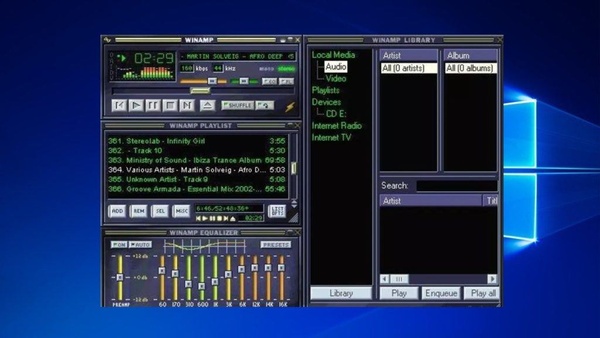
One of the major nostalgia trips of fall 2024 occurred in September when the legendary music player Winamp released its source code on GitHub.
The company had promised a shift to open source back in the spring, raising high expectations.
However, when the code was finally released, the reaction from the open-source community was overwhelmingly negative. Rather than being released as a "true" open-source project, the company published the player's source code under a license that didn't align with the spirit of open-source at all.
Essentially, the company sought volunteer developers to contribute to the player's development but did not allow permission to "fork" the application into different versions or use any of its source code in other projects.
And it appears that the company realized that this move ultimately harmed its reputation--now, Winamp's source code has been removed entirely from GitHub.
With this misstep, the company has effectively ensured that the project is unlikely to regain its former popularity--or attract the open-source developer community back to the fold.
The company has removed nearly all references to open source, but a blog post from the spring remains on its official site, still praising the shift to open source.
However, when the code was finally released, the reaction from the open-source community was overwhelmingly negative. Rather than being released as a "true" open-source project, the company published the player's source code under a license that didn't align with the spirit of open-source at all.
Essentially, the company sought volunteer developers to contribute to the player's development but did not allow permission to "fork" the application into different versions or use any of its source code in other projects.
And it appears that the company realized that this move ultimately harmed its reputation--now, Winamp's source code has been removed entirely from GitHub.
With this misstep, the company has effectively ensured that the project is unlikely to regain its former popularity--or attract the open-source developer community back to the fold.
The company has removed nearly all references to open source, but a blog post from the spring remains on its official site, still praising the shift to open source.














